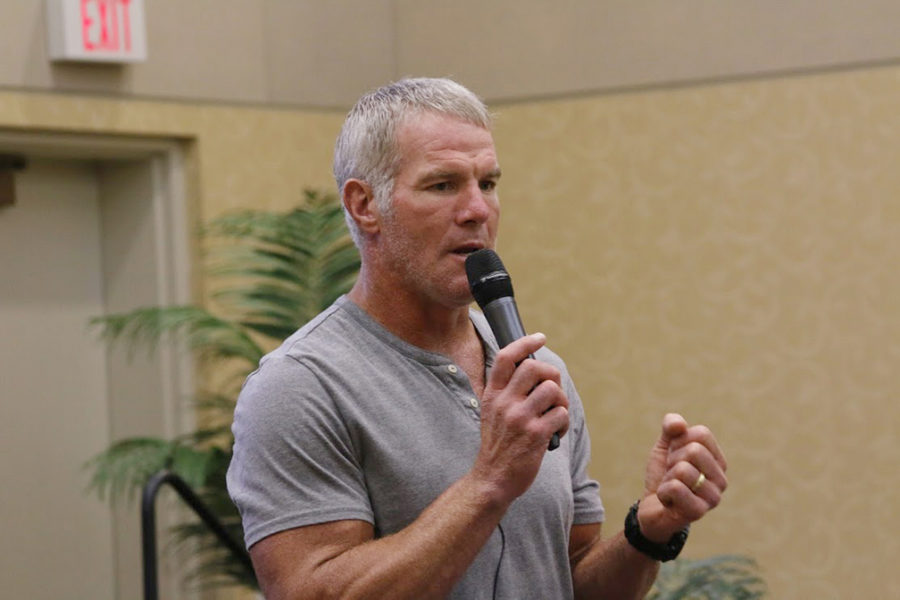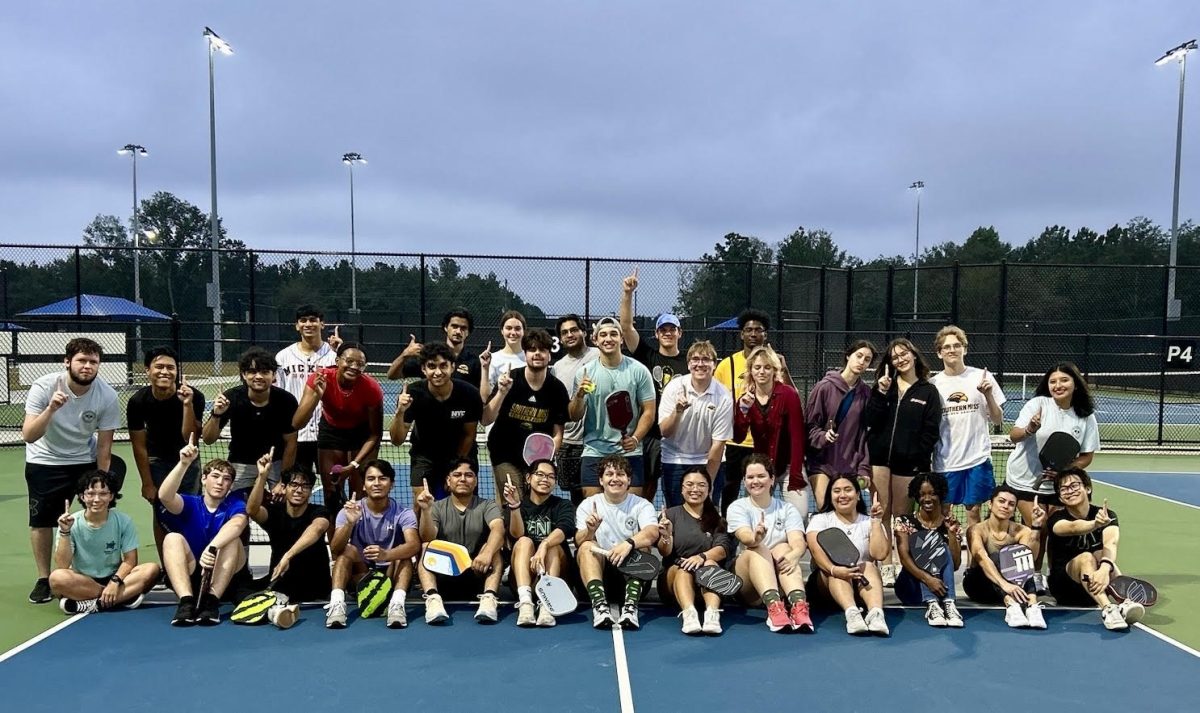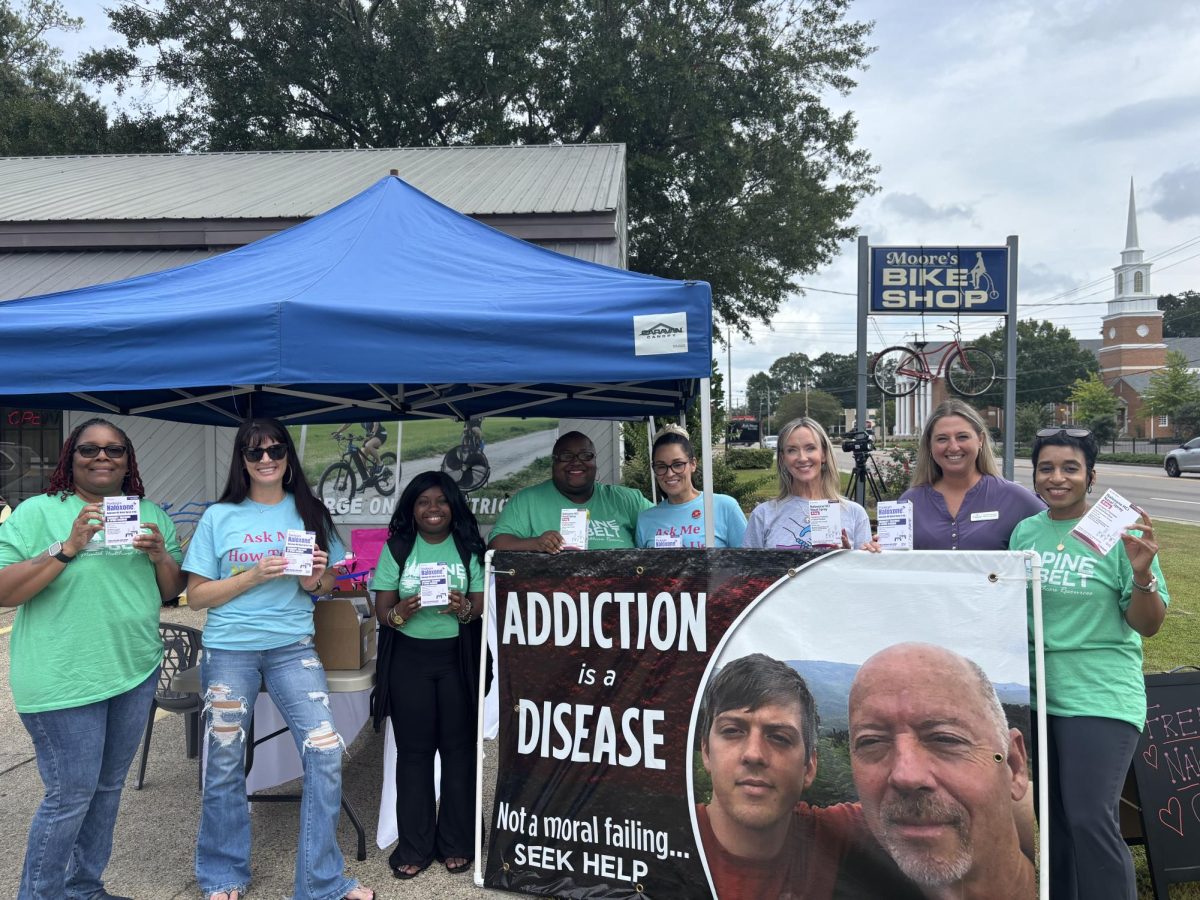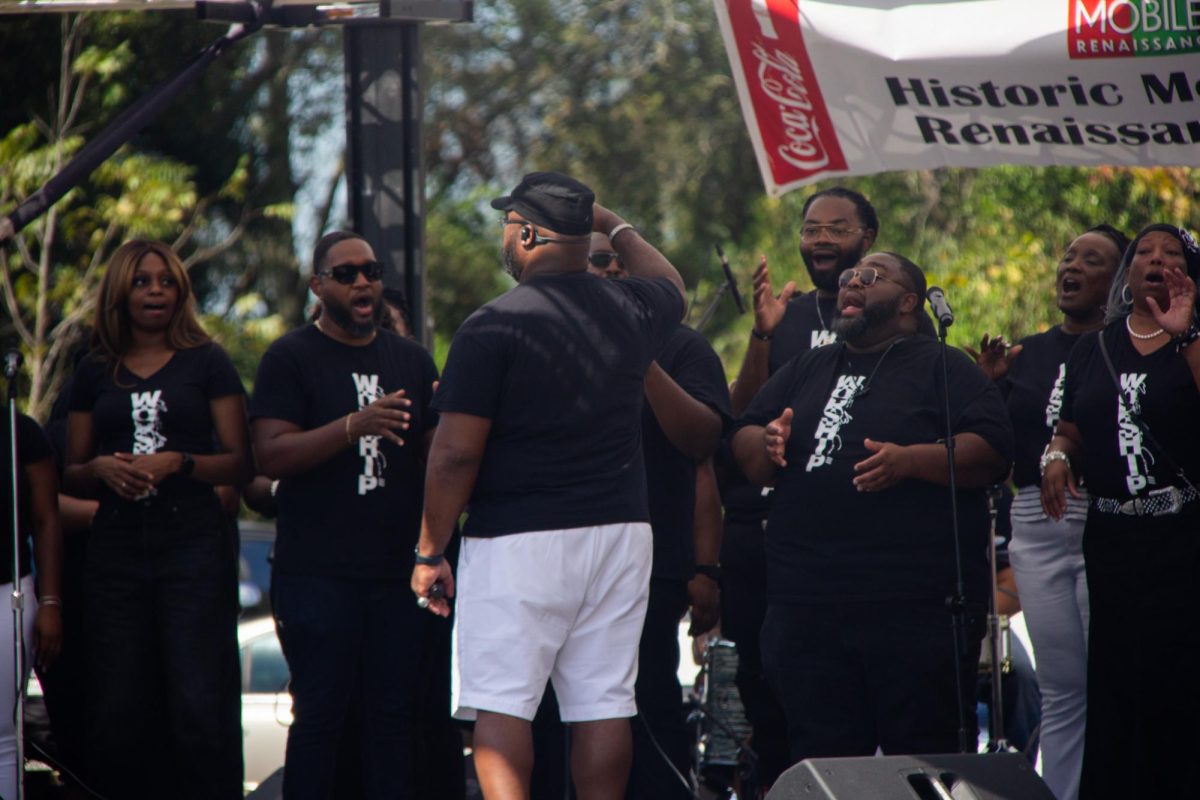Southern Miss alum and NFL Hall of Fame quarterback Brett Favre spoke on the final day of the three-day Rehab Consultants Transition Camp event on Thursday, Sept. 20, with the hope to excite and encourage young adults with disabilities.
Favre’s mother has spent her life working in special education, and Favre followed in her footsteps by majoring in special education during his time at Southern Miss. Favre said that his mother’s influence has made children and adults who face these adversities “near and dear to [his] heart.”
After his presentation, Favre held a Q&A session with the students in attendance. Questions ranged from “Have you ever played with any injuries,” to “What was your best game ever,” to “Can I have your autograph?” Favre kept a fun and light-hearted mood while answering questions, and he responded to many with stories describing times when he overcame difficulties.
Event coordinator Sabrina Singleton, Ph.D, of Vocational and Rehabilitation Consultants LLC, is using the $75,000 grant from the Mississippi Department of Rehabilitation Services to fund events like this one. Singleton expressed her hope that this event will be the first of many occasions to help the local youth see their potential, gain skills and learn options for them to explore as they move into the next season of life.
“We want them to know the difference between a job and career,” Singleton said. “I want these students to learn how to forge a long-term path.”
The Rehab Consultants Camp began with award-winning motivational speaker Dwight Owens on Wednesday, Sept. 19. A Mississippi native and author of his memoir, “Still Standing,” Owens has a unique ability to relate to these students due to injuries he sustained from an unfortunate accident that left him wheelchair bound. Owens used his experience in perseverance against the odds to inspire the youths present. Embodying the notion of ‘making your mess your message,’ Owens’ words uplifted participants who similarly face a unique measure of hardship.
Just over 125 students from six high schools from Forrest, Lamar and Jones Counties were in attendance. Participant ages ranged from 14 to 21 years old. After the conclusion of the Camp on Friday, Sep. 21, students dispersed into small groups to work on exercises that allowed them to explore how to handle real-world situations.
Some of the students present explained how the event helped them.
“I want to play in the NBA one day like Lebron, but if not that, then a police officer,” 15-year-old, Hattiesburg High student Stephen Keys said. “[The event] has shown me how to fill out job applications and encouraged me to grow and prepare for life after high school.”
“I hope to enroll at either Jones or Southern Miss for the fall of 2019,” Kentavia Hilton, a 19-year-old, Northeast Jones High student who aims to be a nurse one day, said. “This [event] has given me a better understanding of how to manage money.”
“I learned a lot about using and managing a checking account and how to love and appreciate myself,” 16-year-old Hana Zehenter from Purvis said. Zehenter plans to attend USM to study broadcasting in the future.
Chris Howard, who has served as the Executive Director of the MDRS for the past three years, was also in attendance. He enjoys seeing the fruits of his labor firsthand and mentioned how fulfilling it was to be present and watch the event unfold.
“The [Transition Camp’s] purpose is to help these young adults prepare for their next phase of life,” Howard said. “Getting students ready for the real world will help individuals contribute at the local, state and national level.”
Throughout the state many businesses partner with organizations like this one to offer a helping hand. Representatives from retail chain Target attended Thursday event with promise of a need for seasonal workers and a willingness to hire. Many participants filled out job applications on the spot with the hope to be employed in the near future. Target also has a hiring event scheduled for mid-October.
Despite their disabilities the young adults gained knowledge and skills from the Transition Camp that will help them better themselves and contribute to the communities in which they live.































